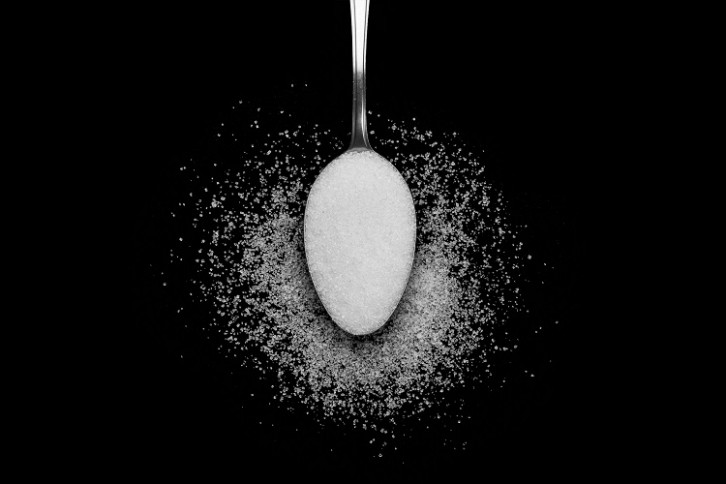The cost of sugar is soaring: What does this mean for food manufacturers and consumers?

The invasion of Ukraine by Russia in February 2022 led to a sharp increase in the cost of ingredients such as wheat, vegetable oil and dairy. However, sugar escaped this rise, remaining steady until last year (2023), when external factors began to impact producers globally and sugar prices started to climb.
Why is the cost of sugar rising?
Climate change has previously been identified as a major threat to the production of commodities such as coffee, with growers warning that rising temperatures and unpredictable rainfall have altered conditions under which coffee plants are grown, leading to decreased yields and increased vulnerability to pests and disease.
Now, the impact of the climate crisis is beginning to be felt by sugar producers, with poor weather conditions, including severe drought, across Europe severely damaging beet crops. The European Union (EU) is the world’s leading producer of sugar beet, producing approximately 50% of the total amount annually. Similarly, sugar cane production in major producing countries, such as Brazil, has also been affected by extreme weather conditions pushing prices up.
The global cost of sugar has risen to its highest level since 2011, following concerns of underproduction rates from countries such as Thailand, which is facing a severe drought. Similarly, India saw sugar prices jump by more than 3% in two weeks, in September 2023, reaching their highest level in six years. This followed a period of low rainfall in the country's key growing regions and raised serious production concerns, for the upcoming growing season. It also raised concerns internationally as there are fears traders and industry officials could discourage the country from allowing sugar exports, putting further pressures on demand and again driving prices upwards.
2023 was the warmest year since global records began in 1850, reaching 1.18°C (2.12°F) above the twentieth-century average of 13.9°C (57.0°F). Moreover, the 10 warmest years on record all occurred during the last decade (2014–2023) indicating that this is not merely a blip, but an environmental pattern which is here to stay and, without major climate change intervention, will continue to worsen.
"Sugar, cocoa beans and milk are among our most important raw materials. These raw material prices are always subject to fluctuations and rising costs are a challenge"
How will increased sugar costs affect manufacturers?
According to the Food and Agriculture Organisation of the United Nations (FAO) Sugar Price Index, the cost of sugar increased by 0.8% to 135.3 index points in January 2024. Coupled with this increase in the cost of raw materials, manufacturers are also facing a rise in production costs, including a surge in the cost of energy bills. All of this combines to create an extremely financially-challenging picture.
“Sugar, cocoa beans and milk are among our most important raw materials. These raw material prices are always subject to fluctuations and rising costs are a challenge,” a spokesperson for Lindt & Sprüngli told FoodNavigator.
To help secure imports of cane sugar, from outside the EU, the EU is granting duty-free access to the market for developing countries, under the ‘Everything but Arms’ agreement, and economic partnership agreements with African, Caribbean and Pacific countries. This will encourage producers to continue to sell to the EU, despite fierce competition for supplies, and safeguard supplies for European manufacturers.
With regards to cost, however, the real impact is likely to be felt by consumers as the cost is inevitably passed on.
How will increased sugar costs affect consumers?
The reality is, the demand for sugar, through sweets, chocolate, fizzy drinks and biscuits, to name but a few, shows no sign of abating, in fact it continues to grow. Furthermore, global sugar consumption is projected to continue growing at around 1.4% per annum, reaching 199 metric tonnes by 2029. Rising sugar consumption is not just underpinned by an increasing desire for sugary treats, it’s also sustained by the exponential population increase and a growth in income, which allows for the purchase of luxury goods.
As a result of the ever-increasing enthusiasm for sugar-rich products, we are likely to see manufacturers passing on increased production costs to the consumer, safe in the knowledge that consumer demand will meet them.
This view is reflected in a statement from Dirk Van de Put, the chief executive of Mondelēz who stated that there would indeed be a “straightforward price increase” for consumers. Mondelēz is one of the largest confectionery manufacturers in the world, operating in approximately 160 countries and boasting brands such as Cadbury, Oreos and Toblerone in its portfolio.
However, not all manufacturers are looking to pass on rising costs to the customer. Some companies are looking at alternative methods to make increasing production costs more manageable.
“Lindt & Sprüngli has made a concerted effort to compensate for increased costs by increasing efficiency as much as possible and through a forward-looking purchasing strategy.” a spokesperson for Lindt & Sprüngli confirmed.
In addition to this, some manufacturers have seen a trend towards sweeteners as an alternative to sugar, as Abigail Storms of Tate & Lyle explains, "The high price of sugar may accelerate the speed in which customers reformulate to sugar reduced products as recent innovation helps formulators deliver sweetening solutions competitive with sucrose."
What is the European Union doing to support sugar farmers?
What is private storage aid?
Private storage aid is granted when external factors pose a significant negative impact on the margins of the sugar industry. The purpose being to keep an agreed volume of sugar out of the market when economic disturbances create a sharp increase or decrease in price. The stores are then released when the price stabilises.
In addition to international imports, the EU produces an average of around 18 million tonnes of sugar per year. The majority of this sugar is used in food production, meaning the EU has an important responsibility to support farmers in sugar production, not only to protect the farmer's livelihoods, but also to protect food manufacturers who rely upon the sugar they supply.
In addition to this, the European Association of Sugar Manufacturers estimates that Europe’s beet sugar factories, "employ approximately 24,000 highly skilled workers in rural areas where few alternatives exist,” further underscoring the number of people who rely upon the security of the sugar industry.
As a result of this, the EU offers support to sugar farmers across Europe in the form of multiple measures, including private storage aid and measures against market disturbance.
Sugar farmers can also get income support in the form of direct payments, which are not linked to production quantities. Alternatively, EU countries can also grant voluntary coupled support to specific sectors, including sugar beet and sugar cane producers, if they are experiencing difficulties - 11 countries across the EU have chosen to take up the opportunity to grant voluntary coupled support.
























